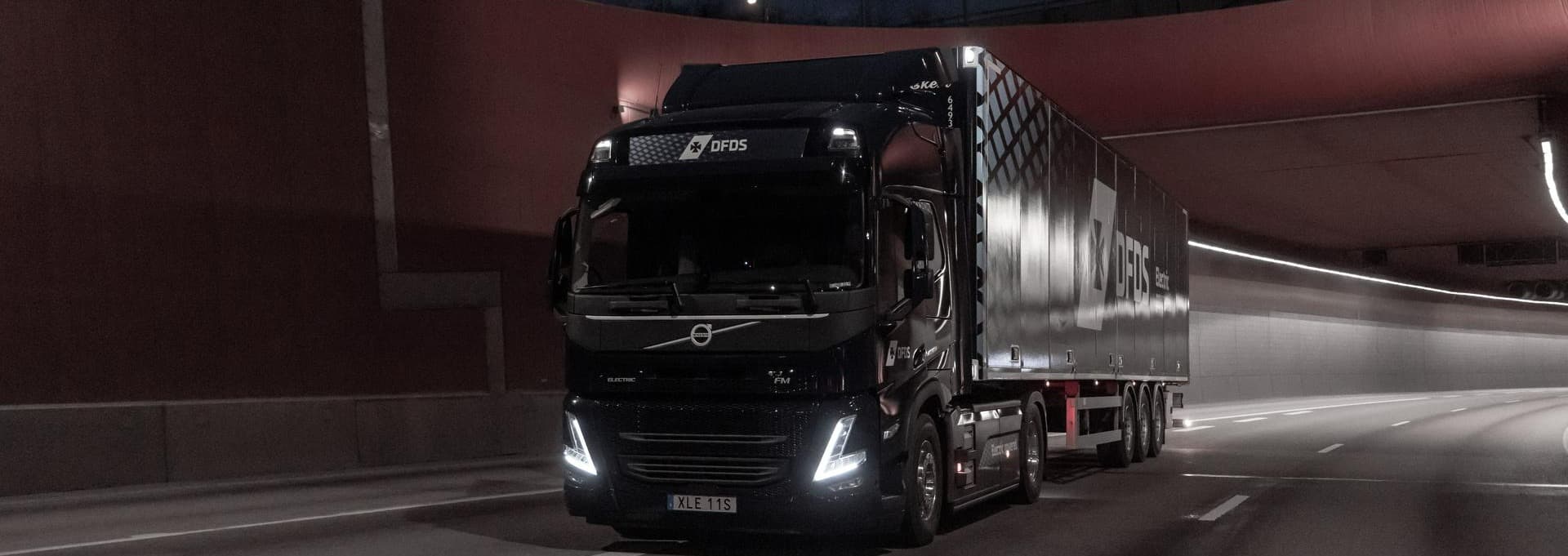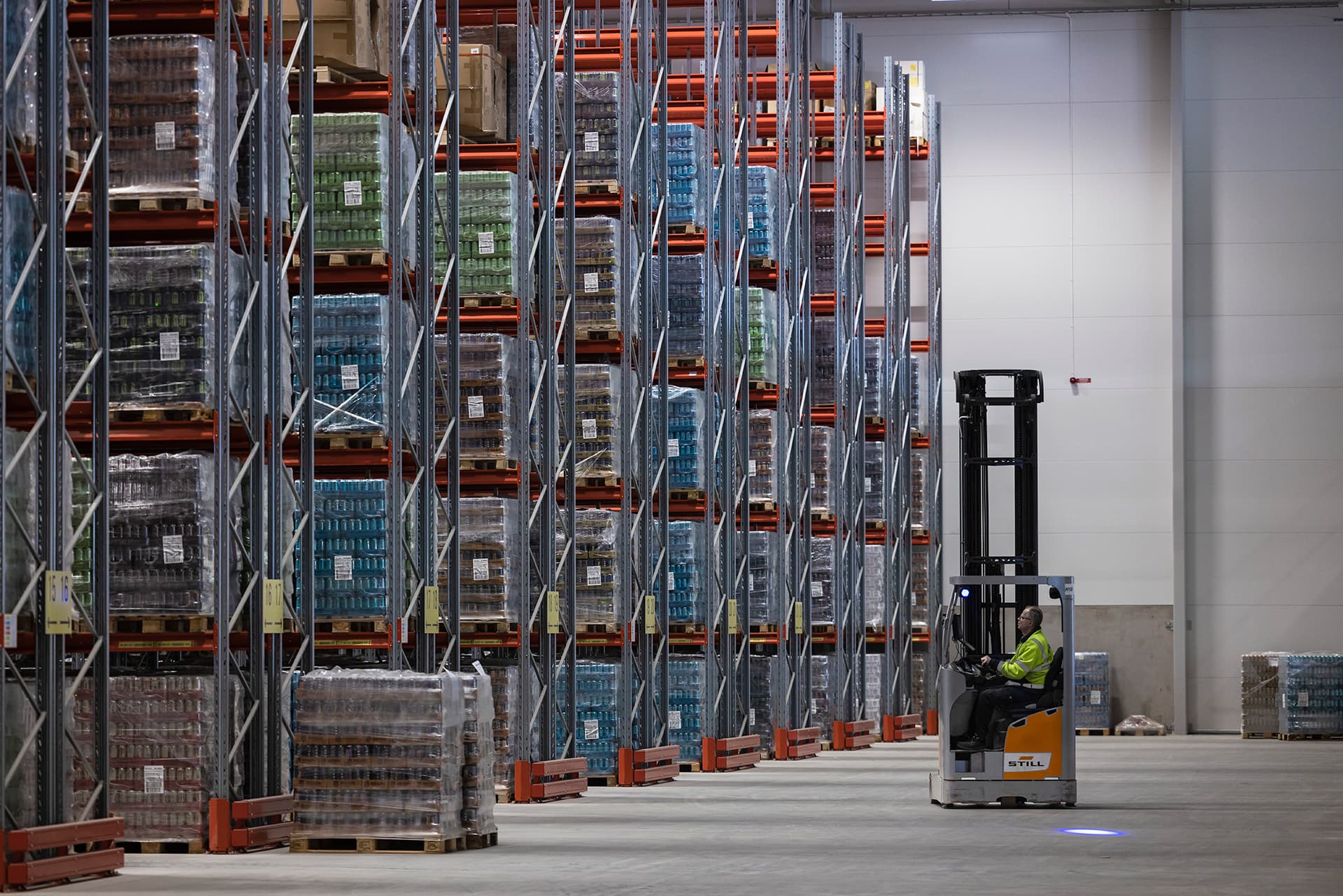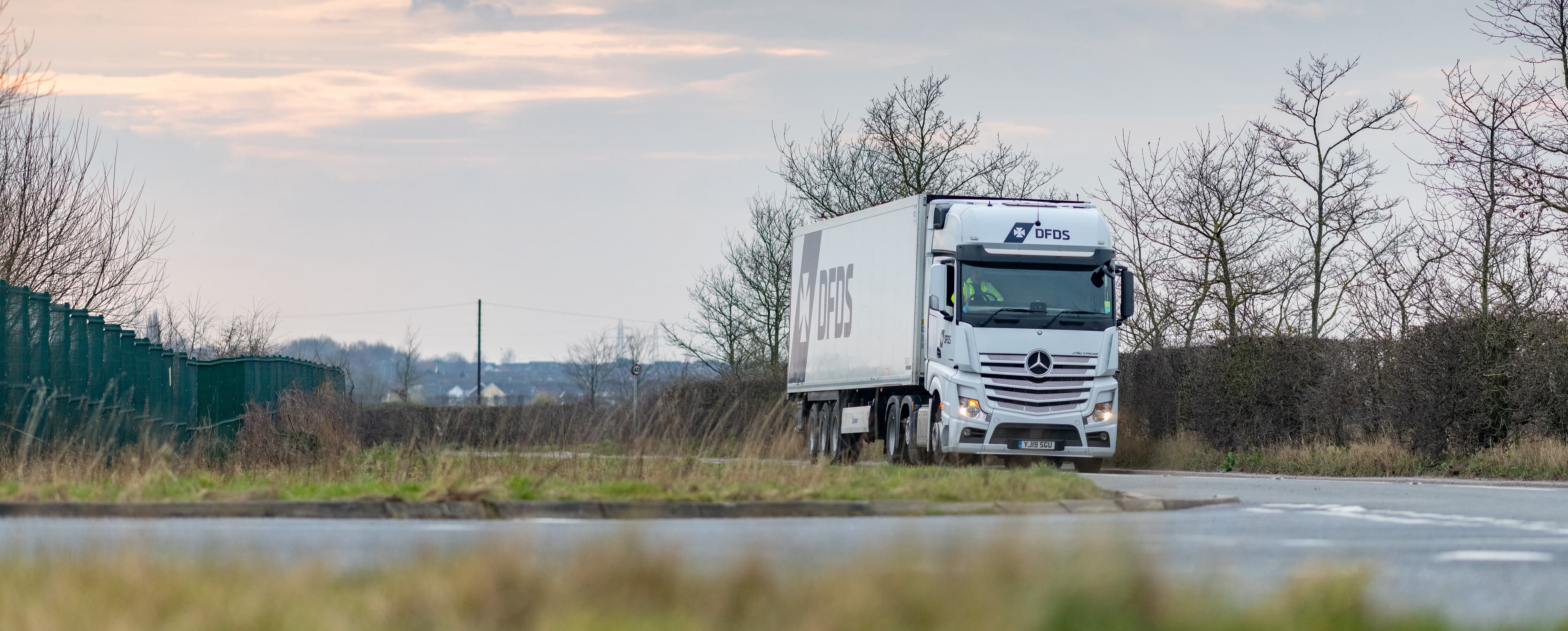Did you know that over 50% of European road freight shipments don’t utilise a full truckload? This growing trend shows how businesses are increasingly turning to part load shipping as a cost-effective and flexible logistics solution.
In this blog, you’ll learn exactly what part load shipping is, how to calculate a part load, when to use LTL or LCL shipping, and the benefits of part load services. We’ll also explain why DFDS is one of the top choices for part load transport across the UK and Europe.
What is a part load?
A part load refers to a shipment that doesn’t require a full truck or container. Instead of paying for an entire vehicle, your cargo shares space with other shipments going in the same direction.
Part load transport is ideal for medium-sized shipments (larger than parcels, smaller than full loads), for businesses that don’t need to move goods urgently, and last but not least, for companies aiming to save costs by paying only for the space they use.
This method is also known as groupage transport because it involves grouping several loads together. It’s commonly used in both road and sea freight industries.
How to calculate a part load?
Calculating a part load depends on both volume and weight. Most logistics providers use the concept of dimensional weight to determine pricing and space requirements.
Start by counting how many standard pallets your shipment occupies. Then make sure your goods don’t exceed the weight limit per pallet (often 500–1000kg). Don’t forget to measure the dimensions of your cargo to calculate cubic meters (m³). For example, a pallet that is 1m x 1.2m x 1.8m = 2.16 m³.
What is LTL shipping and when do I need to use it?
LTL (less than truckload) shipping is the most common type of part load transport for road freight. It’s perfect when your shipment is too big for a courier but too small to fill an entire truck.
LTL shipping should be used when your cargo weighs between 150 kg and 2000 kg, or the goods take up less than 10–12 pallets. This is also a good option if you want flexible delivery across multiple locations or if you’re looking to reduce shipping costs by sharing transport with other businesses. With LTL, you pay only for the space your goods take up. It’s efficient, reliable, and ideal for regular shipments within the UK or across Europe.
What is LCL shipping and when can I use it?
LCL (less than container load) shipping is like LTL but applies to sea freight. Instead of booking a full container, your goods are consolidated with other shipments in a shared container. You can use LCL shipping when, you’re transporting international goods by sea or when your cargo doesn’t fill a full 20ft or 40ft container. Also, if you want lower costs for smaller or mid-size exports/imports or secure handling, then this option is also a good choice.
Benefits of using part load services
Part load services offer a smart, flexible, and cost-effective alternative to full truckload or container shipping—especially for small to mid-sized businesses. Whether you’re shipping domestically or across borders, this option brings a variety of advantages that go beyond just saving money.
1. Cost savings without compromise
One of the most attractive benefits of part load shipping is that you only pay for the space your cargo occupies. Instead of booking an entire truck or container, your shipment is consolidated with others going in the same direction. This means:
No need to wait until you have a full load
Lower upfront logistics costs
Shared transport means shared fuel and handling fees
2. Greater flexibility for growing businesses
Part load shipping is ideal for companies with fluctuating order volumes. You can ship smaller batches as needed, which supports:
On-demand shipping without delays
Testing new markets without full-load commitments
Easy adjustments for seasonal demand or special promotions
This flexibility is particularly useful for startups, small e-commerce stores, and companies scaling up gradually.
3. Eco-friendly and sustainable
Consolidating freight reduces the number of half-empty trucks or containers on the road and sea. This leads to:
Lower carbon emissions per shipment
More sustainable supply chain practices
Reduced traffic congestion and fuel waste
As more businesses aim for greener logistics, part load shipping is an environmentally responsible choice.
4. Reduced storage costs
Instead of bulk shipping and storing unsold goods, you can ship what you need, when you need it. This just-in-time approach helps:
Minimise warehouse space requirements
Lower inventory holding costs
Reduce the risk of overstocking or product expiration (especially for perishables)
5. Reliable delivery with professional handling
Even though your goods are sharing space with other shipments, they are still handled with the same level of care as full loads. Reputable carriers like DFDS ensure:
Secure packaging and careful loading/unloading
Real-time tracking and delivery updates
Professional logistics support and customer service
6. Access to broader shipping networks
Part load services often come with access to vast carrier networks, enabling:
Seamless national and international delivery
Simplified customs and documentation when shipping abroad
Competitive transit times with optimised routes
Why choose DFDS for part load shipping services?
Part load transport across the UK and Europe can be challenging to arrange affordably, especially when you want your items treated with care. That’s where DFDS comes in.
DFDS offers flexible and dependable part load services for both LTL and LCL shipments. Whether you’re transporting chilled goods, pallets, or B2B cargo under 2000 kg, DFDS provides:
Multimodal solutions: Seamless connections by road, rail, and sea
Specialised equipment: Ambient and temperature-controlled units
Groupage transport: Efficient load consolidation across an extensive network
Sea freight expertise: Ideal for LCL shipments through a trusted European ferry network
With over 55 ferries, 24 scheduled routes, 8 port terminals, and thousands of logistics professionals across Europe and UK, DFDS ensures that your goods arrive on time and in perfect condition, every time.




